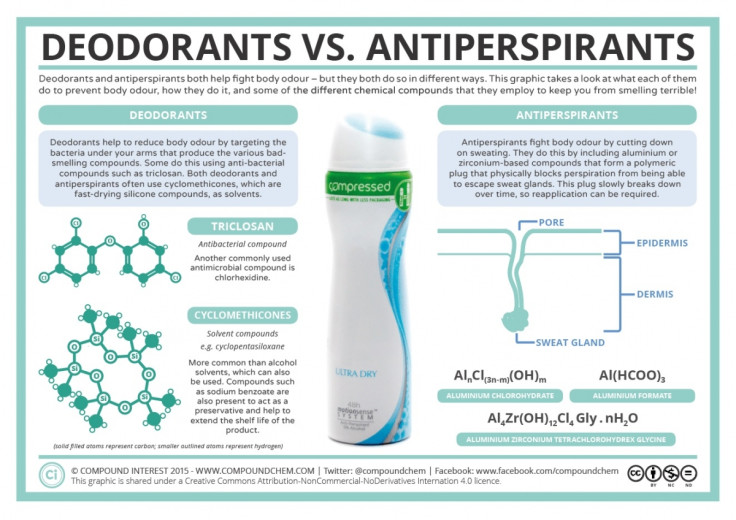How do deodorants and antiperspirants work and what is the difference between them?

We wear them every day, but just how deodorants and antiperspirants stop you smelling of sweat? The American Chemical Society (ACS) has produced a video explaining just that.
Published as part of the ACS's Reactions video series, they explain that bad breath, smelly feet and body odour are caused by human microbiota. In armpits, there are one million bacteria per square inch – effectively making them "odour factories".
Before looking at how to stop sweat, the team explains just why we smell. "It isn't the sweat that stinks, instead it's the by-products bacteria spit out when chomping down on your sweat. There are two main glands on your arms that produce sweat: the eccrine gland and the apocrine gland," the film explains.
"Eccrine lets out a solution of water and salt to help cool you down, while the apocrine gland lets out a mixture of fats and proteins. Bacteria then much down on those apocrine secretions that produce these three primary odour compounds."

While deodorants supply chemical compounds that kill or deactivate bacteria by making the environment too salty or acidic, antiperspirants use substances that stop sweat glands, blocking sweat from getting through the pores.
Although the products are different, you can get hybrids of the two. They both normally contain perfume and alcohol to sterilise the area as well. In addition to wearing these products, the NHS recommends washing every day to keep areas prone to sweat bacteria-free.
© Copyright IBTimes 2025. All rights reserved.






















